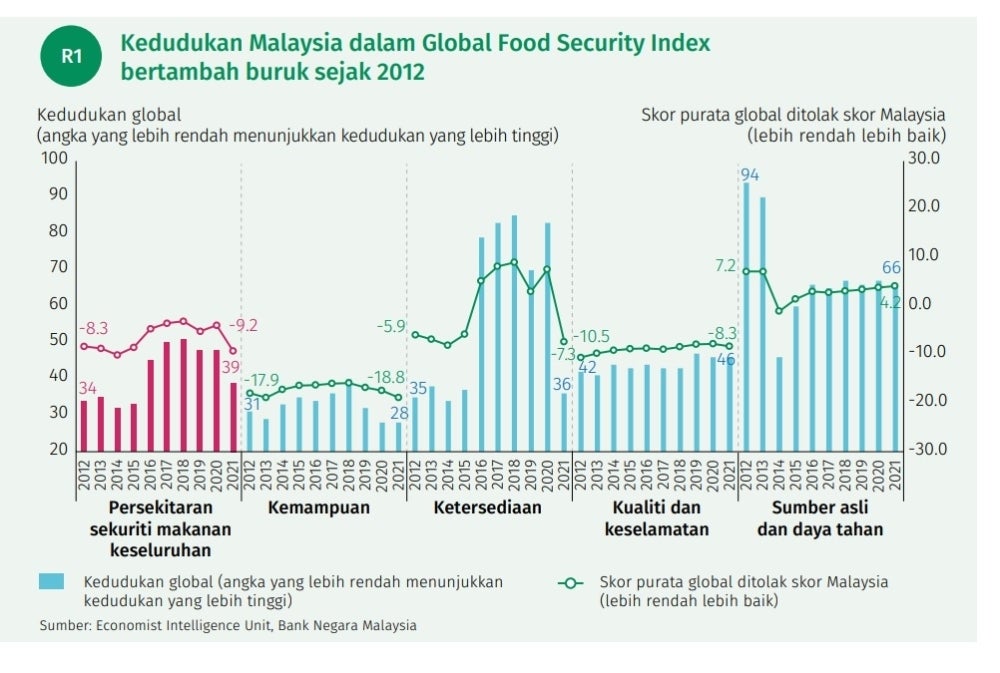Continuous global crises will impact food supply in M'sia


SHAH ALAM- Malaysia will experience a severe food crisis if problems such as inflation, rising oil prices, extreme weather, the Covid-19 pandemic and the Russia-Ukraine war continues.
Universiti Putra Malaysia Agricultural and Food Policy Studies Institute expert Professor Datin Paduka Dr Fatimah Mohamed Arshad said in the current situation, despite facing the food crisis issue, it was still bearable.
"We can still survive. We are lacking meat, milk and mutton. But in terms of fruits, we are still well supplied. If the current situation (globally) continues, it will be worse.
“Let's say China continues to 'lockdown' and the weather crises continue, we will be stuck because we import a lot of meat from abroad. If the supply country experiences problems, we have to bear with the impacts," she said when contacted by Sinar Harian on Monday.
Commenting on how long the country can survive with food supply at this time, she said the matter also depends on the problems that occur in the importing country.
"We cannot predict how long we can last. We have to look at the factors. If foreign countries are facing problems, then we are also in trouble. So, we have to be prepared.
"What we can do now is to solve the problems that are happening in our country," she said.
Therefore, she said, the government should prioritise food supply by looking for initiatives to ensure that food production is sufficient for the citizens of the country.
“We have made mistakes in previous years as we only focus on oil palm and our food sectors are falling behind. The efforts to develop the food sector are still insufficient.
“We have never made the plan to increase the productivity of rambutan, jackfruit, cempedak, watermelon and so on. We only have durian, which is also done privately,” she said.
She added that the local fertiliser industry needs to be developed and expanded as the country imports up to 90 per cent of the goods.
“We have made no effort to develop fertilizer although we have a lot of raw materials including Biomass. Our rubber, garbage, and food waste are plenty, and it can also be channelled to the fertilisers.
"Like Taiwan, they are a country with zero-waste. So, this waste can be turned into fertilisers. We have no such effort and initiative. It's true that agriculture takes a long time, but it is never too late for us to do it,” she said.
Meanwhile, economist Manokaran Mottain suggested that the government should implement the concept of modern agriculture, such as the agriculture in derelict buildings as an alternative measure in facing the food supply crisis, thus improving the people's economy.
“The concept of modern agriculture is simple and needs to be done in the right way. Some government buildings have been abandoned since they moved to Putrajaya.
“So, the (abandoned) government building can be converted into an agricultural place. It means agriculture in the building," he said.
Manokaran said that the government can also provide incentives or revive the 'Green Book' to encourage university graduates to venture into modern agriculture.
"In the past, during the Second Prime Minister Tun Abdul Razak Hussein’s time, the 'Green Book' plan was successful but it was eventually neglected," he said.
Download Sinar Daily application.Click Here!














